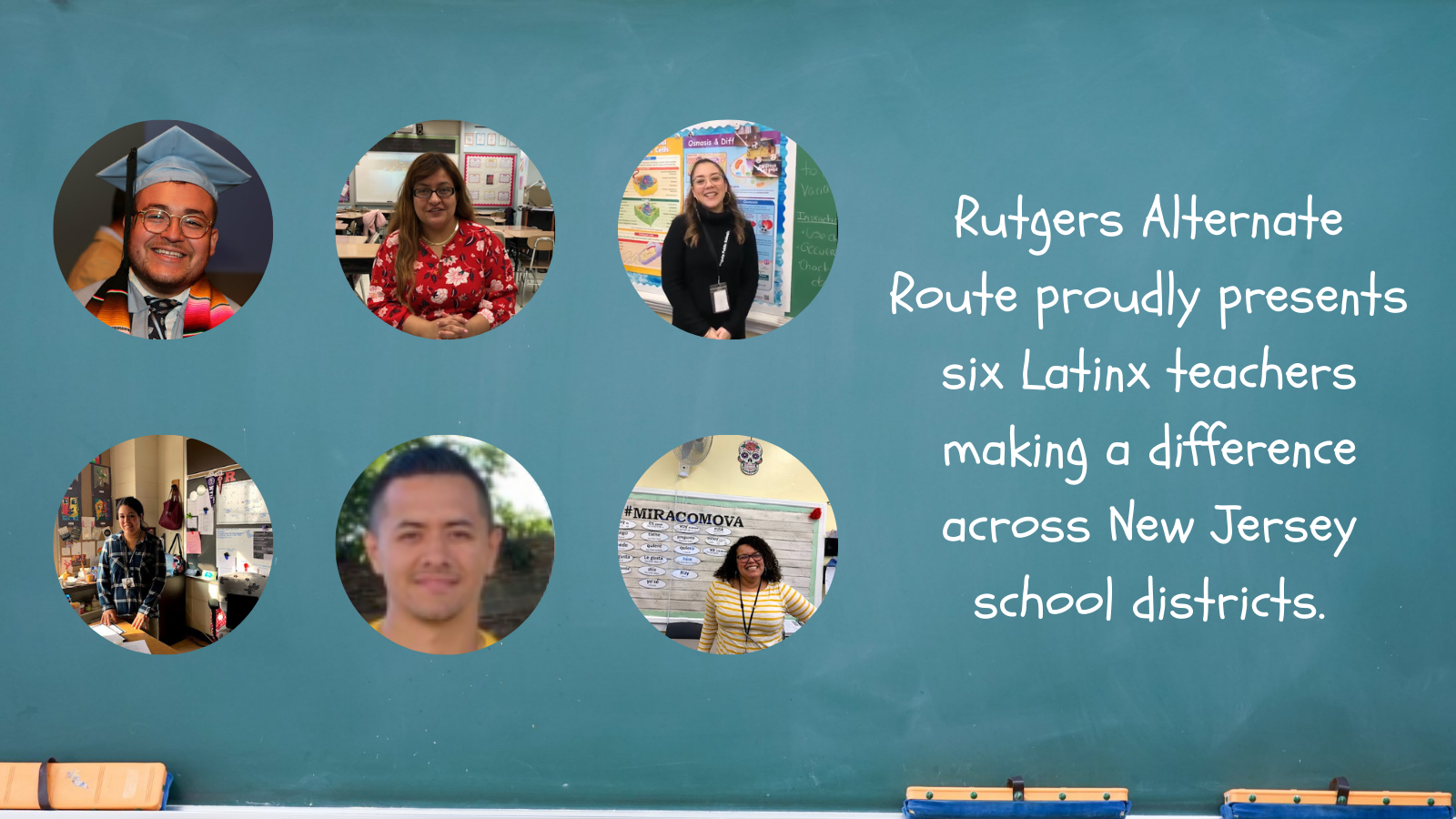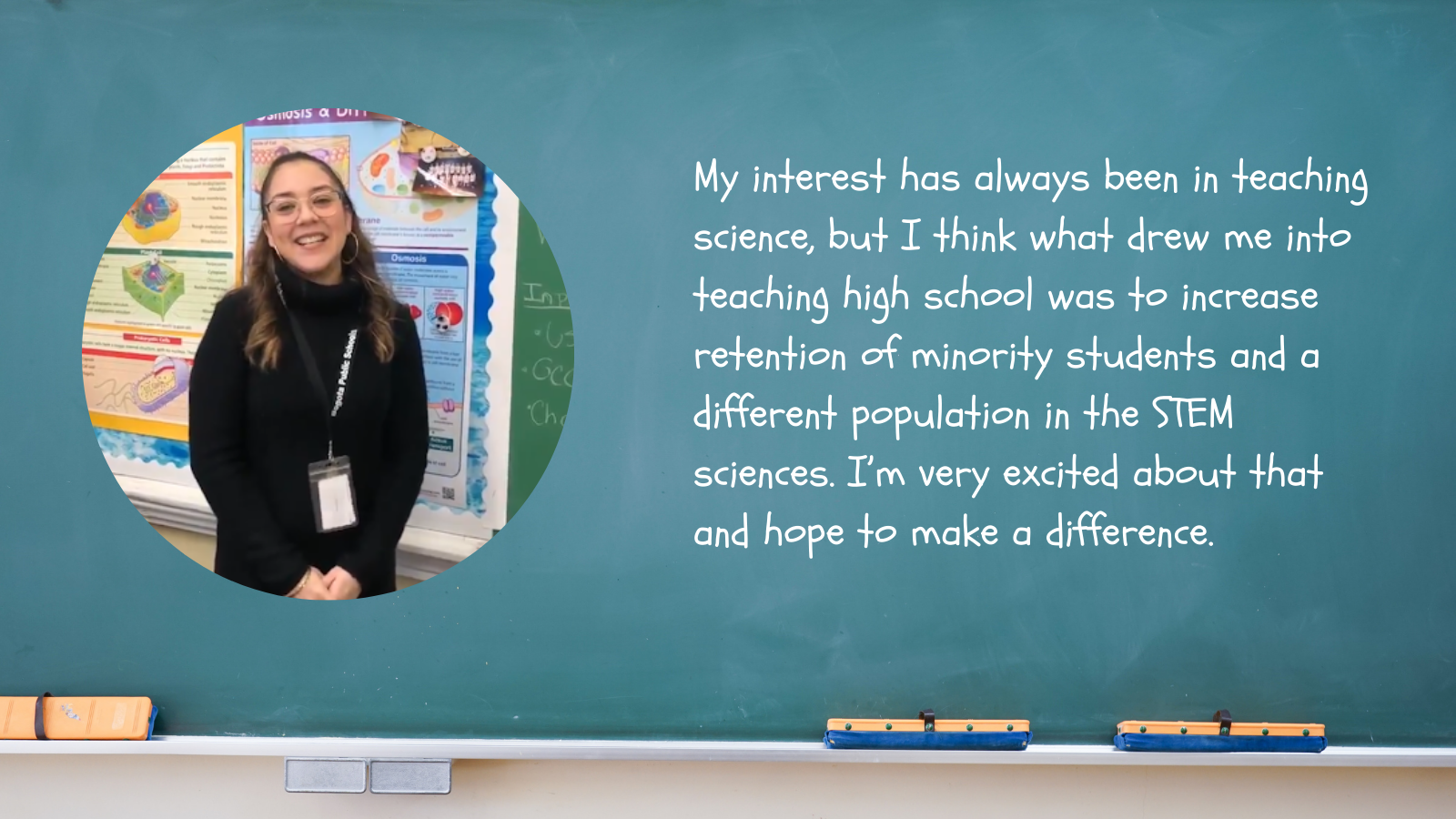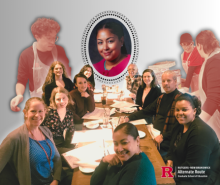Honoring New Jersey Latinx Teachers During Hispanic Heritage Month

Hispanic Heritage Month traditionally honors the contributions of famous achievers of Spanish, Mexican, Caribbean, Central American and South American heritage. It’s equally important to recognize the contributions of lesser-known local achievers of Hispanic descent whose accomplishments are also noteworthy.
Many of these local achievers are working in classrooms leading change while helping students thrive academically and personally. They’ve left other professions to serve as teachers, bringing with them unique backgrounds and experiences that help them inspire their students daily.
And, at a time when districts nationwide are working to diversify their teaching staff, these educators are answering the call to provide representation and high-quality education to students of all backgrounds. Many of their lived experiences reflect the National Center for Education Statistics (NCES) data indicating that Latinx students are the least likely in the United States to have a teacher who looks like them. As teachers, they are actively working to change this statistic one classroom at a time.
Rutgers Alternate Route proudly presents six teachers making a difference in school districts in our state. Learn about their journey to change lives through teaching while addressing the demand for an increasingly diverse teaching force.
Jasmine Valentin, Ph.D.

“During my tenure with the National Science Foundation Graduate Research Fellowship, I received endless praise and positive feedback from the adult volunteers I led and from the funding organization, Earthwatch Institute. I found that the most rewarding part of my work came when a teenager would email me a few years after their expedition and tell me that they changed their college major to marine or environmental science because of their experience with me in the field. This is when I realized how influential I can be in the life of teenagers and how I can help them choose to do something positive for the world.
“The adults I worked with on expeditions constantly asked me if I was a teacher; they said I was very patient and knew exactly how to get the best work out of each and every one of my volunteers. Prior to my graduate research experience, I never actually considered teaching. I did not know this was a career option for me upon completion of my graduate degree.
“I believe the choice to become a high school teacher was solidified on my second-to-last research expedition in 2016. It would be my last teen expedition and it happened to be with a group of underprivileged students on scholarship for the research trip. They all wrote me letters on their last day. One of the boys wrote that this was the very first time he had ever been so far from home and he was extremely nervous. He wrote how I made him feel confident in himself and capable of anything. His final words will always stay with me: he said, ‘Many people worry about never making a difference in the world, I just want you to know that you never have to be one of them. You have made a difference in all of our lives in just a few short days.’”
Nicole Aguasvivas
.png)
"As a student, I had several passionate teachers who engaged me and made learning a fun experience. These teachers taught me much more than just content; they encouraged me to think outside of the box, to question what I was told, and to problem solve. Because of these teachers, I was motivated at a young age to become an educator and help to mold our future leaders. As important as content is, knowledge cannot be used without these additional skills. Teachers like these changed my life for the better and I would like to do the same for my future students.
“I believe that children benefit from being themselves. I enjoy listening to and discussing things with my students. I envision my class as a place where they can explore their own thoughts and each other’s as well. I want to create a nurturing and safe learning environment where students develop confidence in their own abilities. As such, modeling good social skills is important to me. I’d like for my students to be able to reflect on their thoughts so they can think critically and explore their own opinions in a safe and encouraging environment. My hope is that they gain confidence in their thoughts and that they are able to defend their point of view. I hope by combining content, peer discussions, and an effective learning environment, students can become open-minded, independent and able to make a difference.”
German Cardona
.png)
“I’ve always been a passionate person for soccer and health science, and for that reason, I decided to start looking into careers that focused on health. It took me a while just to get my associate degree because I always had to work full time and study part time. During that time, I got a job as a custodian in the local public school district and then started working as a substitute teacher there. At the beginning, it was tough because I was working only as a substitute and the money wasn’t enough. Thankfully, I was able to find a part-time job as a soccer coach for a soccer academy. That experience was the start of my passion for teaching because I enjoyed it as much as if I was actually playing professionally and the connection with the kids was amazing.
“When I met my fiancée, who is also a teacher, I shared with her how much I enjoyed working with kids while coaching soccer. By sharing and learning more about this beautiful career, I started to consider becoming an educator as well. Working in the schools, watching the physical education teachers and sharing with the kids during all these years gave me the final push to pursue a career as a physical education teacher.
I have been an active person who cares a lot about keeping a healthy lifestyle, and I know that in this country the rate of obesity among children and young adults is drastically high. Therefore, my major goal is to teach the younger generations the importance of being active and living a healthy lifestyle, as well as all the benefits that exercise combined with good nutrition have to offer. In addition, I also teach students about being respectful and becoming good citizens in order to create a better and safer community.”
Karen Freire
.png)
“I didn’t always want to be a teacher. I wanted to become a certified public accountant and attorney. However, my life experiences are what made me want to become a teacher. Prior to working as a teacher, I worked for 10 years at the Brooklyn Criminal Court, where I noticed that it was the same people and, at times, family who were constantly getting arrested. I then thought to myself that I wanted to make a change in the world. The way that I thought I could accomplish this was by becoming a teacher. As a teacher, I would be able to reach them while they were still young. I would be able to teach students not only math, science, ELA and social studies but I could also teach them life skills and how to be able to succeed in life and stay out of jail.
“I wanted to become a teacher so that I could show my students that if I could go to college and achieve my goals, so could they. Nothing is impossible. It just takes a lot of hard work and perseverance. It doesn’t matter how many times you fall; you always get back up.
“Being a teacher has been the most rewarding thing I have ever done. I feel as if I’m not only teaching my students but helping them succeed and become better adults and individuals. I love who they are becoming, and it feels so rewarding to know that I have something to do with their growth.”
Jazmin Puicon, Ph.D.
.png)
“I was selected as a teaching fellow at the honors college during my last year in my Ph.D. program at Rutgers University. In this course, I led first-year honors students to explore innovative solutions to world challenges presented by the United Nations’ Sustainable Development Goals (UN SDGs). In mid-semester evaluations, some of the honors college students commented, ‘I like that she encourages class discussions and helps us learn visually (using whiteboards rather than just reading PowerPoints) because it allows us to go more into depth in our discussions.’ ‘She is also very approachable and is always willing to help out students.’ ‘I like that she brings in real-life examples … and is passionate about the class and linking our ideas together.’
“I understand the struggle of first-generation college students, minority students and other underrepresented students because I, too, was one. I successfully navigated college life because of irreplaceable mentors who believed in me, my work and my life goals. Therefore, I know the importance of finding and being a good mentor, especially during the initial stages of college life and during times of personal hardship. These are the reasons that brought me to teaching, and these are the reasons I am so passionate about my craft and about history.
“My goal as a teacher is to tap into the potential in my students, build up their strengths and challenge them as we learn about silenced people and experiences in history. I build upon my personal experiences, successes and failures to mentor my students and teach them about how to be successful in life.
“One of my greatest joys as a teacher is to watch the transformation of my students as they begin to understand how history works and how it can be either invalidating or a source of empowerment. And this is perhaps the most important thing I can share with the students in my classes.”
Jon Carlo Dominguez
.png)
“I had the blessing of going to a small-community Catholic school for elementary, where teachers valued and cared about their students and their success. Growing up, I never even had to think about my race and/or identity because my hometown is made up of Latin-American immigrants and their children.
“That changed when I started high school at an all-male boys preparatory school in New Jersey. At 13 years old, for the first time, I had the experience of being ‘othered’ and of being thought of as ‘lesser’ simply because of my identity.
“The children of wealthy, white executives were always nice at first. But as they'd hear my last name or notice how I pronounce a word in Spanish, the jokes about cleaning bathrooms or working for white people or the never-ending questioning of my abilities would begin. I even had my college essay addressing these microaggressions published in the New York Times.
“I got into teaching because the overwhelming majority of our teaching force in America is composed of white women. I'm a Hispanic child of immigrants from Ecuador and a man of color in education. When my students reflect on what people who look like them, speak like them and have names like them do, one example that will come to mind for them is their teacher Mr. Dominguez: Columbia University graduate, passionate about learning and kind.
“I know that Black and Brown kids just need the same support and resources that their white peers get, and I consider myself a single, tiny, but hugely significant step in the right direction to mitigate the effects of racism.”

 Heather Ngoma has over 25 years of experience collaborating with educators across New Jersey to drive education innovation. She currently serves as the Director of the Rutgers-GSE Alternate Route Program in the Department of Learning and Teaching, a program which helps career changers, recent college graduates, and other aspiring education professionals become licensed teachers in New Jersey. Follow her on Twitter @heatherngoma.
Heather Ngoma has over 25 years of experience collaborating with educators across New Jersey to drive education innovation. She currently serves as the Director of the Rutgers-GSE Alternate Route Program in the Department of Learning and Teaching, a program which helps career changers, recent college graduates, and other aspiring education professionals become licensed teachers in New Jersey. Follow her on Twitter @heatherngoma.





